Toxic Religion: Is Christianity Compatible With Positive Mental Health?
Some Christians are trying to make these two seemingly disparate approaches to the human person work together. But there's a longstanding disconnect between them that points to underlying conflict.
This is a free post made possible by paid subscribers.
Writing is my profession and calling. If you find value in my work, please consider becoming a subscriber to support it.
Already subscribed but want to lend additional patronage? Prefer not to subscribe, but want to offer one-time support? You can leave a tip to keep this project going by clicking the link of your choice: (Venmo/Paypal/Stripe)
Thank you for reading, and for your support!
I ran into a post today on Facebook that really grabbed my attention. Here it is (and here’s a link to the original for those who want it):
I was struck immediately by the sense that this list, while full of mentally healthy behaviors I am supportive of, is simply incompatible with Christianity as I have come to understand it and see it lived. The post above represents a deconstructionist view; a religion taken apart, stripped down, and put back together in a way that feels like a coping mechanism. As though it’s possible to re-interpret the common Christian beliefs that cause these “toxic religious ideas” as aberrations, rather than as the real deal.
I’m not convinced.
It’s Not Us, It’s You
It’s been a year since I walked away from the Catholic Church in disgust. Since then, I have been trying discover who I really am and what I really believe. Since I had a lot of very damaging ideas and behaviors that led to my existential crisis at midlife, I think about themes like mental health and emotional abuse a good bit. And from that perspective, I’ve become increasingly convinced that contemporary ideas about mental health — even things as seemingly innocuous as positivity culture — are very often antithetical to Christian beliefs.
I’m not alone in this recognition. In a recent piece at the popular Catholic scandal rag Church Militant, we were treated to this galaxy brain take on Anxiety and Depression:
Despite this "chemical imbalance theory" never having been proved (nor can it ever be), the mental health system still holds to it because it's what keeps people's eyes away from the real cause of their problems. Better said, if people realized the cause of their problems was their own bad decisions rather than a chemical imbalance, they wouldn't seek the usage of psychotropics — they would desire to authentically change their lives.
Dr. G.C. Dilsaver, founder of the Institute of Psychomoralitics, which studies and treats mental disorder from a Thomistic perspective, provides a more reasonable definition of anxiety:
So-called General Anxiety, as this name indicates, is certainly a psychomoral fear, for it is not a fear of this or that, but of everything; that is, it is trepidation of one's very existence. As such, it is an anxiety that does indeed have a basis in reality, in the very existence of the person and his particular circumstances in life. For God's ways are not man's ways, and thus reality necessarily threatens a person's pride and self-love.
Psychomoralitics also defines depression, also known as self-pity, as "a defense that arises from anxiety. This defense triggers an instinctual flight reaction from anything that threatens one's pride."
Dr. Dilsaver elaborates on this phenomenon, saying, "Psychomoral depression is specifically a sadness or self-pity that refuses to accept the humiliations of reality, of human existence, and one's personal circumstances."
Accepting these humiliating realities of life is what purifies man and results in his maturation, Dilsaver insists.
Anyone who has actually suffered from clinical anxiety or depression knows what a load of hot, steaming garbage this is. But it’s been a prevailing view in conservative Catholic circles for as long as I can remember. I am aware that the view of many in the contemporary Church is changing in a positive direction in this regard, but as with the post above, I view this as an inorganic (and thus, arguably inauthentic) development. It’s certainly one that is viewed with extreme suspicion by those in traditionalist circles, like those I formerly traveled in.
Things have changed enough, in fact, that some people didn’t believe me when I said that psychology and mental healthcare are often stigmatized in Catholic circles. In a Twitter exchange a few months back, I grabbed some headlines from various Catholic websites to demonstrate the point that there is a history of enmity here:
For those who can’t make it out, the screenshot in my second tweet above repeats the Dilsaver theme. It reads:
“The only true psychological healing in the Catholic mystic tradition is prayer and fasting, combined with a sincere study of the faith. If only we did exactly what Christ told us to do — turn away from the satisfactions of the world so as to renounce sin, pray constantly, and live chaste, modest, and humble lives filed with loving sacrifices for the salvation of other souls — we would be spiritually and mentally healthy.”
So you see, if you have issues with mental health, the problem is your insufficiency. You didn’t live a holy enough life. You didn’t pray and fast enough. You didn’t accept the humiliating realities of life as God demands.
I’ll wait while those of you who need to go punch a hole in the wall go and do so.
Better?
Good.
These prevailing ideas are why I think the list trying to distinguish “toxic religion” from the real stuff is a Sisyphean task. “Honor your father and mother” has often been used to justify abuse of obedience, both at home and in church. “Turn the other cheek” has often been deployed to turn people into doormats, even when they should stand up for themselves. People who seek professional therapy are flat out accused of spiritual immaturity or effeminacy. For every point on the list, there’s a real pattern of behavior underlying the reason it’s being addressed. That list is exists not because the issues it mentions are uncommon, but because they are damned near ubiquitous.
Have you subscribed to The Skojec File yet? It’s only $5 a month, gets you access to our community and exclusive subscriber content. Most importantly, it’s how I support my family and keep providing quality content for you to enjoy!
If you like, you can offer additional support for my work via Paypal or Patreon.
The Fine Line Between Redemptive Suffering and Christian Masochism
Arguably the most obviously beneficial aspect of the Christian religion on a purely human level is its belief in the sublimation of suffering. Rather than treating suffering as the worthless misery it so often feels like, Christianity tells us it can be transformative. Redemptive. Salvific. And the central doctrine of Christian belief is, of course, that God so loved the world that he was willing to take on and bear horrific suffering for our sake, and for our salvation.
If that’s really all there was to it, there would be no point to writing this. It’s a net positive down the line to make suffering worthwhile.
“Life is suffering!” shouts Jordan Peterson, in one of his many recorded lectures. “So what do you do in the face of that suffering?! Try to reduce it!”
That, too, is a worthwhile goal. Finding a way to make the inevitability of suffering bearable through the pursuit of meaning and an attempt to reduce the suffering of others is an unmitigated good.
But Catholicism — in my view, the original and most authentic form of Christianity — seems not just to accept suffering, but often to embrace it to the point of masochism. Rather than teaching us that we should try to alleviate it where we can, we are seemingly admonished to run towards it. Lot’s of little platitudes litter the path:
“Don’t like it? Offer it up.”
“Embrace the cross God gives you. If you don’t, he might just give you a bigger one.”
“Nobody said it was going to be easy!”
“We were not promised happiness in this life.”
“This suffering is hard, but we deserve worse. We deserve hell.”
That last one is the worst, but it’s also informative. If you’re irreparably broken, a miserable sinner who offends God at every turn, then you deserve to suffer. Yes, the Church talks about God’s infinite love for people, and waxes poetic about their immutable human dignity. But underlying (and perhaps even contradicting) these more appealing themes is that darker one: “You’re fallen and sinful and can never overcome it by your own strength; you can do nothing without God. (And since God isn’t here, what we really mean is that you can do nothing without us, the Church).”
Being told how much you’re loved while being made to feel worthless and incapable is practically the definition of gaslighting. It’s like the stereotypical abusive narcissist who love bombs to keep you in a relationship, but only so he can keep working you over. “I love you, but if you don’t return that love I’ll have you tortured forever in indescribable ways” would be obviously psychotic if a person said it.
But when we put that same concept in God’s mouth — “love me, worship me, obey me, or be cast into the fires of hell forever” — it magically transforms, in the minds of religious believers, into a pearl of divine wisdom. Many would even go so far as to characterize such a warning as love, or mercy.
I really, really struggle with this.
I keep coming back, again and again, to the idea, and maybe it’s just a caricature, that traditional Christianity (Catholicism specifically) is at heart a cult of masochistic self-abasement. If the message is that on our own, we’re nothing but hopeless sinners who incapable of escaping shamefulness and sin, what does that do to us psychologically? And to make matters worse, we are reminded constantly that Christ’s crucifixion is also our fault. As one old priest we knew loved to work into his homilies as often as possible, we should count the following words on our five fingers, reflecting on Christ’s accusing voice, “YOU DID IT TO ME!”
Imagine a child who is told over and over by his father that he’s a loser and a disappointment, and who is blamed any for every misfortune that has befallen the family. Does it matter that the same father tells the boy “I love you” from time to time? Is that enough to fix the damage done?
I hear some of you objecting, “But God’s willingness to save us from the undeserving squalor of our sin is just proof of his love for us! He pulls us from the depths of our depravity and redeems us! This is why we should be filled with gratitude and love of him!” And I see your point. But if the hypothetical father above makes his child feel like absolute garbage for his failures — failures that he, as just a child, was ill-equipped to avoid — and then builds him back up to show everyone what a great dad he is to love that child despite what a screw up he is, isn’t that sick? How different is it when we go through life, broken and ignorant of the true nature of spiritual realities, make mistakes derived from the faulty, fallen nature we have received?
When my wife and I first got married, I had precious little self-confidence or self-esteem. I did an OK job of faking it, but inside, I was an anxious mess, full to the brim with hurt, fear, self-loathing, negative self talk, and a seemingly bottomless well of anger. I couldn’t see my potential or worth, even though I could regurgitate the talking points about human dignity and God’s infinite love. But I didn’t believe that all this alleged love and dignity really meant anything in terms of personal value or capability. I didn’t deserve that love so I didn’t feel special, and my “dignity” meant that I was the property of a divine being, not myself. I would therefore be held to account for living in any way that merely satisfied my own needs and not his demands. It didn’t matter what I wanted. It only mattered what he wanted. And since he never talked to me in a way I could perceive, I often let others convince me they knew his will for me, when I wasn’t trying to interpret circumstances like a fortune teller reading palms. It was desperate and impossible, and I wonder how many decisions I made thinking it was what he wanted when I was really just guessing, or listening to someone else’s speculation (or manipulation).
I had been convinced that this was just how it was supposed to be. “The humiliating realities of life” as someone like Dilsaver would put it, were something I had come to accept. You just have to resign yourself to such things. Even though these beliefs were making me miserable, I defended them with zealous vigor, because I was convinced that they were true. I would try to “do the right thing” at every turn, and then when things would blow up in my face, wonder why God rewarded my efforts with more suffering. But I also turned around and inflicted all of my internal suffering on others. I lashed out emotionally. I made others feel as worthless and low as I felt. And I couldn’t even see what I was doing, or that it was wrong. I was so used to feeling bad, it was my baseline for normalcy.
It should come as no surprise that when my wife saw how self-defeating I was and tried to introduce me to pretty common self-improvement themes, I was instantly dismissive. They felt so self-indulgent and fake. Faith, after all, was not there to build us up and inflate our ego, but to remind us of how desperately we needed God’s mercy. We certainly weren’t entitled to feel something as indulgent as self-worth — pride, after all, goeth before the fall! We were meant to let people trample our boundaries as we turned our cheeks, lying flat like doormats. We bowed and scraped before the Church as she lorded her God-given authority over us. And no matter what she and her ministers did, we were to just keep taking it because, “Lord, to whom else shall we turn? You alone have the words of everlasting life.”
It’s no wonder I didn’t start learning to say “no” to people until I was in my 40s.
More and more these days, with a little distance from all these ingrained ideas and a desire to get mentally healthy and help my children do the same, I can’t ignore what appears to be a fundamental contradiction between any conventional take on positive mental health and healthy boundaries and traditional Catholic teaching and culture. I can’t see how a religion that tells you over and over that you’re a miserable sinner who will never make it on your own can also be OK with taking steps to realize self-worth, reject negative self image, and be the best version of yourself. “Believe in yourself” is not a message I’ve ever heard in a catechism class. “You are enough” would get you laughed out of church.
In all my years as a Catholic, the Church never helped me fix what was damaged inside me. I’m not even sure what mechanisms the Church has to accomplish such a thing. My belief system did not help me to separate my wounds from who I was as a person. After all, “I’m a sinner so I’m not surprised I act this way” is a pretty effective way of glossing over the real issues that are driving your bad behavior, especially when you’re praying and receiving the sacraments and it’s still not enough. The Church also never helped me identify the ways I was harming the people I loved and to create healthier behaviors to replace them - in fact, it distracted my attention with other, less consequential things.
So I had to heal without the Church’s help. I’m still doing that. And now that I no longer believe “I can’t do it without God’s help,” it’s working much better. Co-dependence is a powerfully psychologically suppressive force. It steals your agency. “Whether you think you can, or you think you can't – you're right,” said Henry Ford. He was right. When you surround yourself with people who think you can instead of those who tell you you can’t, you’re far more likely to start believing it.
The Church seems to need us to be broken, or we won’t keep showing up. “You can’t do this alone!” is a message of dependence, not of wellness or strength. It never offers to heal us in this life. That can gets kicked down the road until you’re on the other side of eternity.
“The only thing stopping you is you” rings a lot more true, at least in my ears.
I’m done with toxic religion. How about you?



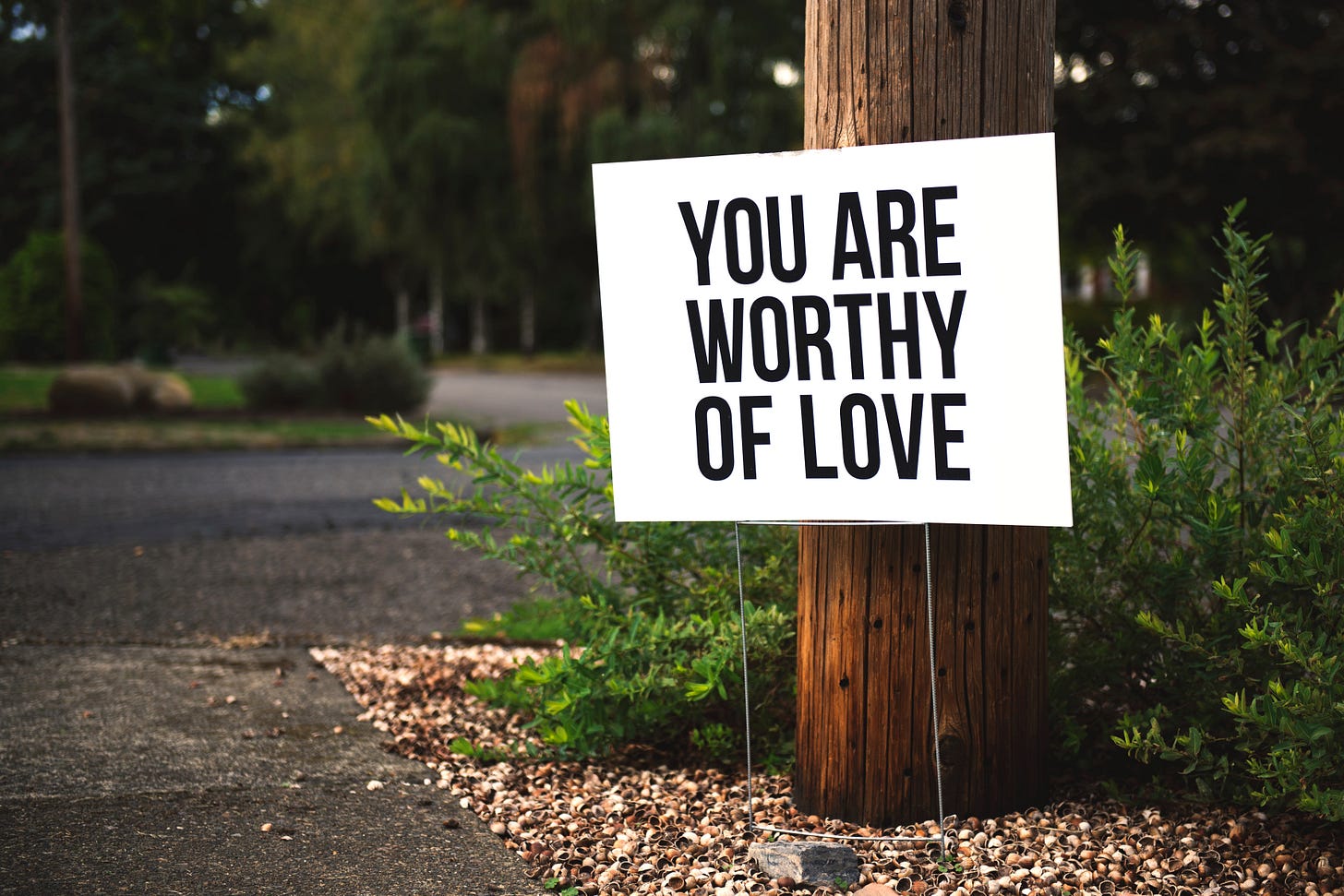


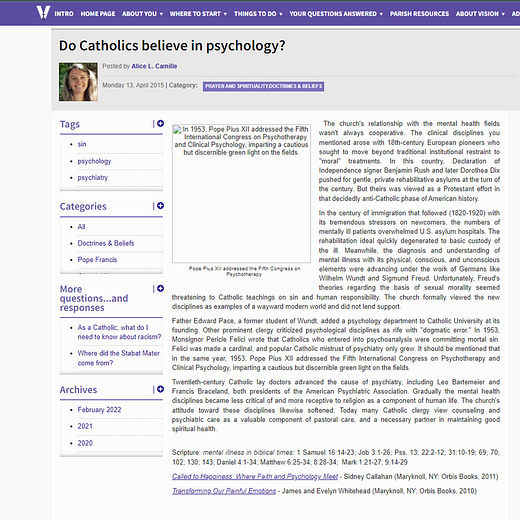
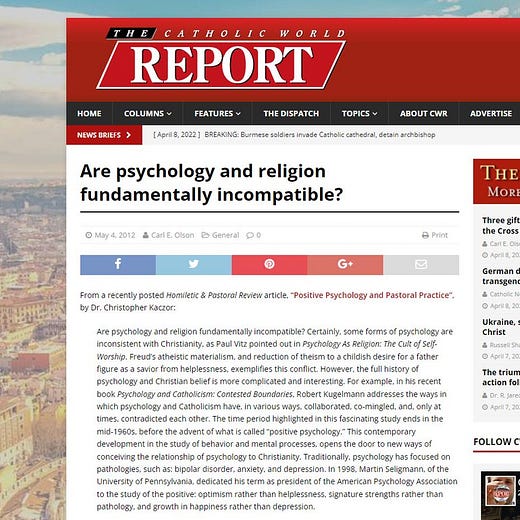
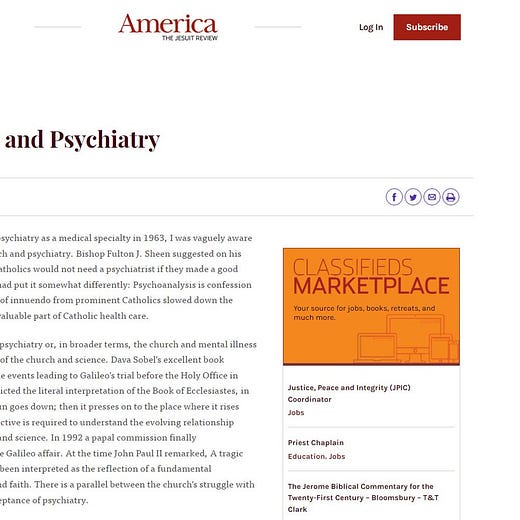
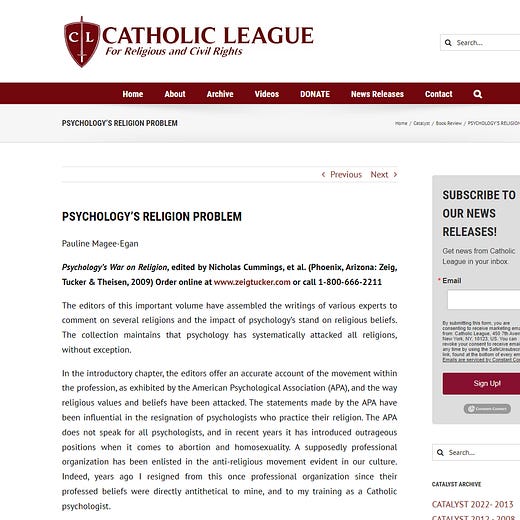

Everything about this article resonates so much of what I've been feeling and thinking for the past 4 years. My tiny brain can't wrap around the fact that we have someone who's supposed to be a loving father insist we suffer for him. Not only are we expected to suffer, we're expected to suffer with a smile on our face and gladness in our heart. I have MS and I can barely walk and my insurance won't cover the treatment I need to get to prevent it from getting worse. I've asked God to be healed or to provide some type of financial windfall to get the medication or to move to a more accessible home. I get nothing. When I tell people this, I get a multitude of stupid answers:
1. I have to make an effort before God can heal me and even then the healing I want is internal not external;
2. I keep trying to be in control. I have to let go and let God take the reigns;
(1 and 2 seem to be contradictory but potayto potatoe)
3. God will never let this suffering go to waste. The amount of grace that God gives is so much more than your suffering. (I can't buy a wheelchair with grace)
4. Be patient. God provides for all of your needs. (If all my needs were being provided for I wouldn't keep asking for the same things over and over again).
After a certain point you get tired of constantly being told "no" to everything you ask for yourself from someone who is so cold and silent. Ultimately, life is a losing battle.
Wow, another blockbuster! You're stretching and challenging me with well thought out and articulate essays like this
. Maybe because part of my family is Orthodox and I've always loved the Christian East I've had first hand experience of Christian faith unimpacted by Augustine and Anselm. Between the two of them their thinking and theologies have, in my very humble opinion, traumatized western Christians. How many Roman Catholics and Protestants have a Stockhom Syndrome "love" for God? How many live in agony believing that most of their family members and friends (and they themselves) will probably go to hell? How many view life as an obstacle course booby trapped with countless occasions of sin? This is good news?!
I have been led to believe that no one stands alone and no one is self sufficient. We need other people to survive, let alone remain sane. We need air to breath, food to nourish and water to drink. We also need God, who made us to share in His divinity and life. He IS beauty, goodness and love. In Christ God is even "now" drawing all, throughout all time and universes, to Himself. Only those who prefer something to joy will miss out.
Saints Isaac of Syria, Gregory of Nyssa, Macarius, Ambrose and Boniface have been very helpful to me
Thanks Steve for your honesty and willingness to share your struggles with faith. You have a strong intellect and raise excellent questions that are too often left to fester in people's minds..